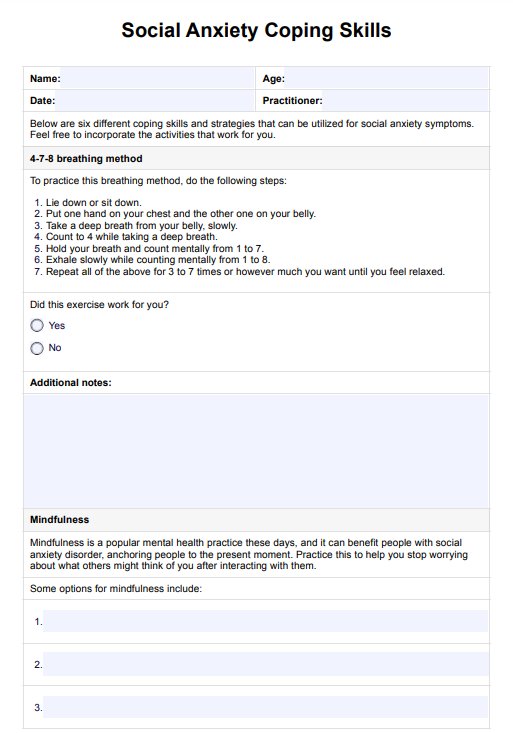The Anxiety and Depression Association of America reports that social anxiety disorder affects nearly 15 million adults in the United States. This condition is one of the most prevalent mental health challenges, ranking as the second most commonly diagnosed anxiety disorder after specific phobias. It highlights how widespread social anxiety is and underscores the importance of understanding and addressing it effectively. Other mental health problems can be present with this specific difficulty also.

Social Anxiety Coping Skills PDF
Provide your clients with this Social Anxiety Coping Skills PDF to explore practical strategies for managing social anxiety.
Social Anxiety Coping Skills PDF Template
Commonly asked questions
No. Shyness is just temporary discomfort in social interactions. Social anxiety is constant and persistent, and depending on the severity, social anxiety can be disruptive.
Children with social and anxiety disorders will have a hard time establishing relationships with other kids. They might struggle with school because they don't want to be there or around other kids. Adults might struggle with work communication and presentations, which can significantly affect their standing in the company and lead to being laid off if their performance keeps dropping.
EHR and practice management software
Get started for free
*No credit card required
Free
$0/usd
Unlimited clients
Telehealth
1GB of storage
Client portal text
Automated billing and online payments











